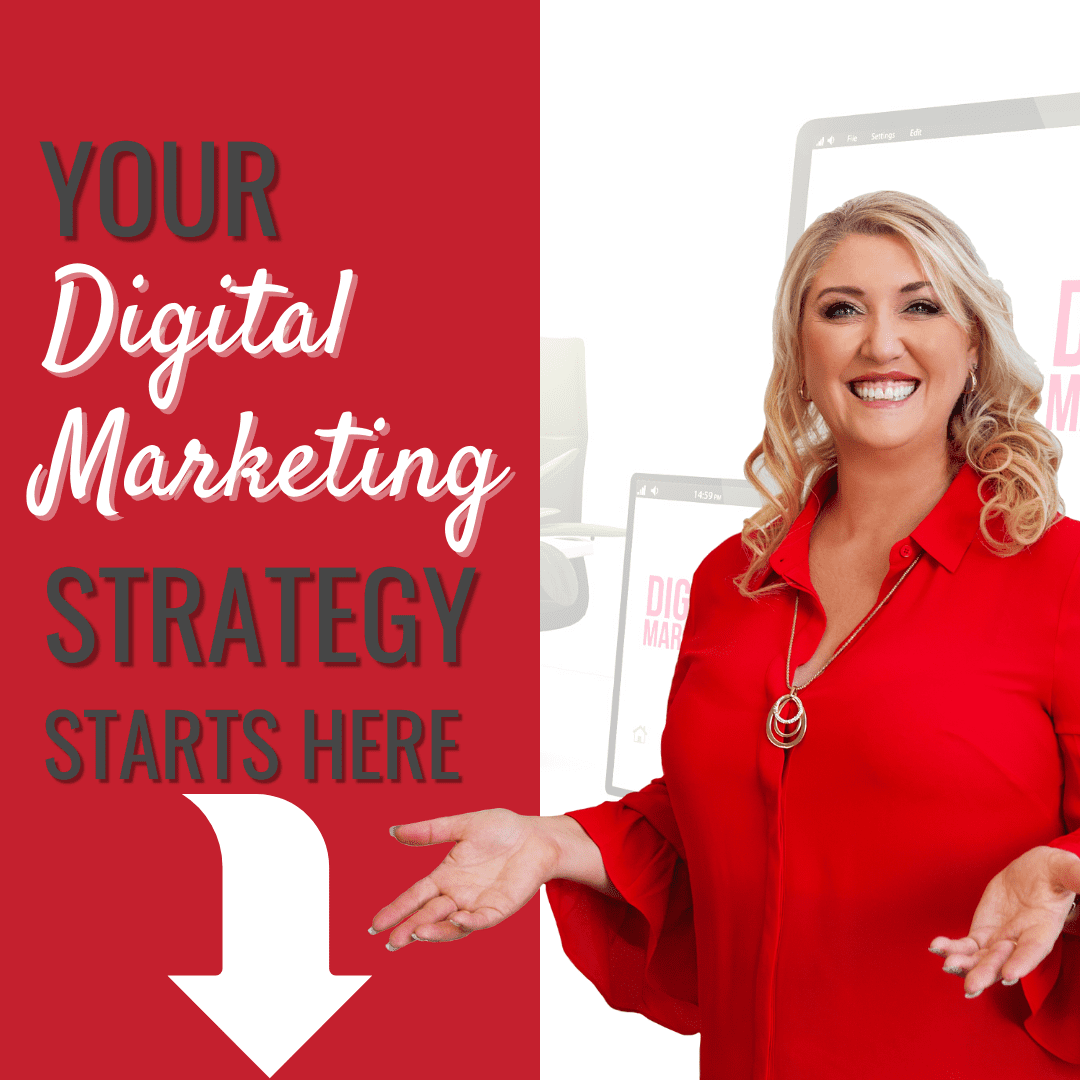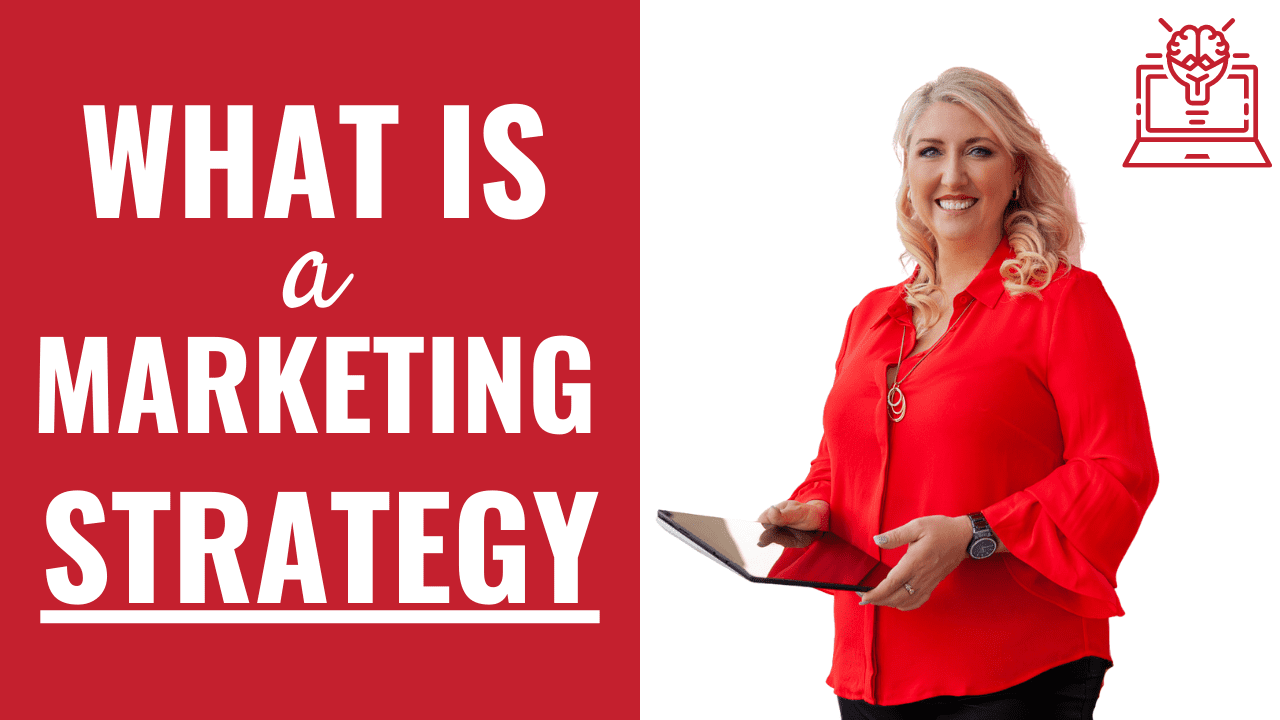Why is a marketing strategy so important for business? How can it help you achieve success?
Click here to Watch the Videos BelowThe definition of strategy is, “A plan of action that aims to achieve a specific goal or goal set over the long-term.” A marketing strategy can help you understand your target demographic and potential ways to reach them. To achieve positioning among customers and fulfil customer and organisational loyalty, it is essential to determine how you want to position your product or service in the market.
In short, marketing is creating sales opportunities, as well as communicating and positioning your product or service, and translating the operational lines needed to reach a target market.
How to Set up your Marketing Strategy in 2022?
Set Marketing Goals
 Defining your marketing objectives is the first step toward developing a successful marketing strategy. The effectiveness of your marketing campaigns are impossible to analyse without pre-defined goals. These allow you to have an overview of how effective your tactics are or how you can reach your goals in the future.
Defining your marketing objectives is the first step toward developing a successful marketing strategy. The effectiveness of your marketing campaigns are impossible to analyse without pre-defined goals. These allow you to have an overview of how effective your tactics are or how you can reach your goals in the future.
To help you set your marketing goals, you can ask these questions and see if they are aligned with your strategy:
- How do you define the goal or outcome?
- Why is it important?
- How will your marketing efforts be measured?
- What are the three most important goals you want to achieve through your digital marketing?
- What are the actions you want your audience to take?
Know Your Target Audience
 The next step towards creating a digital marketing strategy is identifying your target audience. Marketing campaigns that are not directed at your target audience will be ineffective and essentially pointless. Understanding your current audience’s demographic data will allow you to do this.
The next step towards creating a digital marketing strategy is identifying your target audience. Marketing campaigns that are not directed at your target audience will be ineffective and essentially pointless. Understanding your current audience’s demographic data will allow you to do this.
To figure out where your target audience hangs out, you need to understand their pain points and show them how your product or service can provide a solution for them. And to help you identify your target audience, you can use this checklist as your guide:
- Where are they located?
- What is their age?
- What is their occupation?
- Do they have any pain points?
- What can you do to ease their problems?
- What information are they looking for?
- In what ways can you assist them?
- Where do they spend time in the online space?
OR you can save some time and check out our Social Media Infographic here to discover the best Social Media platforms for your target audience.
Map Out Your Digital Messaging
 Regardless of your niche or the industry your business belongs to, competition will always be there. Differentiating yourself from the competition relies on your brand message. By sharing your ideas and values, you make a customer more inclined to do business with you. Your brand message can influence marketing decisions and content creation.
Regardless of your niche or the industry your business belongs to, competition will always be there. Differentiating yourself from the competition relies on your brand message. By sharing your ideas and values, you make a customer more inclined to do business with you. Your brand message can influence marketing decisions and content creation.
I always remind my clients how important it is to have a clear and strong brand messaging. One place you can incorporate this is through your website. An important thing to remember is, you do not own your social media accounts. So make sure you have a legally compliant way of adding them to your email list or database to allow you to connect with your audience if you loose your social media account.
To make your content resonate with your audience, there’s a simple formula you can use and here are some of them:
- Determine the problem your customer is experiencing.
- Ensure that your brand message is clear.
- Describe how you will solve the problem.
- Show your audience what it may be like to live using your product or service.
Where Is Your Target Market Online?
 Although it depends on the type of company you have, Facebook, Instagram, and Twitter are still leading in terms of users and usage. The effectiveness of these platforms changes as trends change. That is why every digital marketer is always keeping tabs on the current trends to help them create a strategy that is aligned with your business goals.
Although it depends on the type of company you have, Facebook, Instagram, and Twitter are still leading in terms of users and usage. The effectiveness of these platforms changes as trends change. That is why every digital marketer is always keeping tabs on the current trends to help them create a strategy that is aligned with your business goals.
Research plays a critical role in every aspect of your business growth, from knowing and understanding your target market to find where they usually hang out. In case you are not sure where to look, here’s an overview of each social media platform and who normally hangs out there:
- There are over 6 billion users on Facebook, making it one of the most popular social media platforms for marketing. There is a social media account for almost everyone on this platform.
- With Instagram, you can showcase your product’s or service’s visual aspects in the best light. There is no better platform for doing this. Instagram is modern, fun, and easygoing, so you should think of it as a virtual shop window.
- Connecting business people through social media is what LinkedIn is all about. A platform for companies, brands, and experts to connect with other companies, brands, and websites. You can use LinkedIn for outsourcing jobs, collaborations, HR, etc.
- Similar to Instagram, TikTok is a social media platform devoted to short video content. In some countries, it might be restricted, considering it has a bit of a reputation, but it’s still on the rise and viral among younger generations.
- It’s great for connecting with your audience on YouTube. Millions of users use it each day, and it’s an effective video-sharing platform.
- Using Pinterest for your business marketing offers you a unique opportunity because it is both a visual search engine and a social media platform. You can find new potential customers through Pinterest since many people come here looking for inspiration.
Assess Your Marketing Process
 We always aim to look out for new trends and apply them to our clients. However, we often forget to look at our own strategy. That is why I always remind my team at Marketing Leap to take a step back and reevaluate our current marketing strategy. Check which one is working and improve those not.
We always aim to look out for new trends and apply them to our clients. However, we often forget to look at our own strategy. That is why I always remind my team at Marketing Leap to take a step back and reevaluate our current marketing strategy. Check which one is working and improve those not.
You may ask these questions when analysing your data:
- How well are you doing in reaching your goal?
- How does your marketing effort measure up in hard data?
- Using digital marketing, what were your top three achievements?
- How are you engaging your target audience?
- What is the ROI and conversion rate of this?
Schedule time every month to review your marketing efforts and reevaluate your initial objectives. You can check our previous blog for a more detailed explanation of how to utilise Google Analytics here.
Conclusion
All these steps listed above will help you show up more often in front of your ideal audience and grow your business. It also allows you to stay on track without the overwhelm and monitor all your marketing efforts.
Whether you have any questions or simply want to chat, drop a comment below! We offer a full range of done for you realistic, practical marketing solutions for your business that deliver results and hit the spot with your customers. You can check out what we do here.
Don’t forget to Check out our library of FREE Resources & Downloads to help you grow your business!
If you want to learn how to implement different marketing elements in your own business, I have a series of Online Digital Success courses focusing on different marketing elements. These are self-paced courses, so you don’t miss out on the learning! You can learn all about those here.
Prefer structured mentoring? I also offer a 12 week 1to1 mentoring program designed to Give You Clarity, Generate leads & STOP DROWNING IN THE OVERWHELM! There are also 2 hours Strategy Sessions available. If it’s time to get a Clear Action Plan, Digital Strategy Map & Checklists, you can check out the details here!
Regardless of what you need when it comes to online marketing, take the Leap … we are your springboard to success!
What is a Marketing Strategy?
FAQs To Know About Marketing Strategy
- Set Marketing Goals
- Know Your Target Audience
- Map Out Your Digital Messaging
- Where Is Your Target Market Online?
- Assess Your Marketing Process
- How do you define the goal or outcome?
- Why is it important?
- How will your marketing efforts be measured?
- What are the three most important goals you want to achieve through your digital marketing?
- What are the actions you want your audience to take?
- Where are they located?
- What is their age?
- What is their occupation?
- Do they have any pain points?
- What can you do to ease their problems?
- What information are they looking for?
- In what ways can you assist them?
- Where do they hang out in the marketing world?























